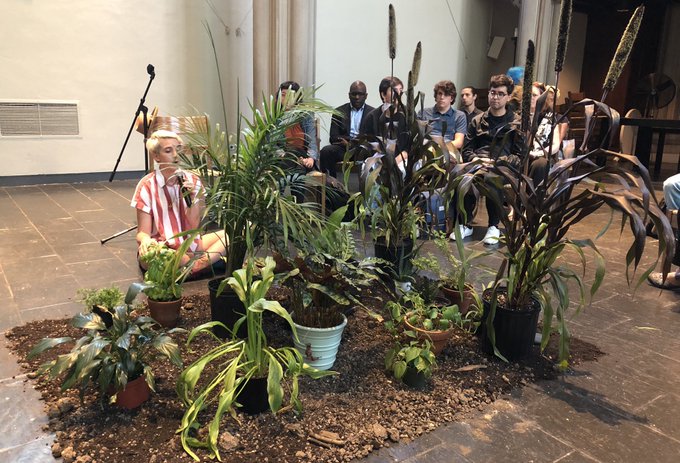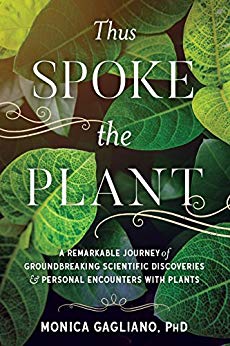Today in Chapel We Confessed to Plants
and in so doing confessed to God, too.
Today in chapel, we confessed to plants. Together, we held our grief, joy, regret, hope, guilt and sorrow in prayer; offering them to the beings who sustain us but whose gift we too often fail to honor.
— Union Seminary (@UnionSeminary) September 17, 2019
What do you confess to the plants in your life? pic.twitter.com/tEs3Vm8oU4
Open and relational (process) theologians say "yes" to the idea that there is something like interiority all the way down, which God so loves.
When we confess the way that we have neglected and harmed plant life, or at the very least been ungrateful, we are simultaneously confessing to One in whose heart and consciousness plants live and move and have their being, along with us.
To be specific we process theologians propose (1) that there are degrees of subjectivity throughout creation, (2) that there is something like subjectivity in the cells of a living plants if not also in the whole of the plant; and (3) that wherever there is subjectivity there is intrinsic value - Whitehead calls it "self-enjoyment" -- even if non-conscious.
We add that the universe is embraced and guided by a cosmic mind, God, who likewise has subjectivity of God's own, and whose subjectivity is itself enriched and partly formed by the subjectivities of others, plants included. This mind is more than creation but not cut off from creation.
Consider how your own life is engraced and enriched by plants. They become part of you. And so it is with the very soul of the universe, with God. When we honor the living quality of plants we simultaneouly honor part of what makes God "God." And when, as we learn from Psalm 148, the plants and other creatures express themselves, reaching out into the universe saying "I am" in their own ways, they are becoming part of this mind and adding to its qualities in their ways. In their reaching they are "praising" and "filling his command."
This way of thinking is not paganism but rather, as it were, psalmism. It is this psalmic approach to God that modern, western readers of scripture have lost, due in part to the reduction of the universe to a vast assemblage of lifeless entities, itself a project of modernity and capitalism. Time to let the plants speak.
-- Jay McDaniel
When we confess the way that we have neglected and harmed plant life, or at the very least been ungrateful, we are simultaneously confessing to One in whose heart and consciousness plants live and move and have their being, along with us.
To be specific we process theologians propose (1) that there are degrees of subjectivity throughout creation, (2) that there is something like subjectivity in the cells of a living plants if not also in the whole of the plant; and (3) that wherever there is subjectivity there is intrinsic value - Whitehead calls it "self-enjoyment" -- even if non-conscious.
We add that the universe is embraced and guided by a cosmic mind, God, who likewise has subjectivity of God's own, and whose subjectivity is itself enriched and partly formed by the subjectivities of others, plants included. This mind is more than creation but not cut off from creation.
Consider how your own life is engraced and enriched by plants. They become part of you. And so it is with the very soul of the universe, with God. When we honor the living quality of plants we simultaneouly honor part of what makes God "God." And when, as we learn from Psalm 148, the plants and other creatures express themselves, reaching out into the universe saying "I am" in their own ways, they are becoming part of this mind and adding to its qualities in their ways. In their reaching they are "praising" and "filling his command."
This way of thinking is not paganism but rather, as it were, psalmism. It is this psalmic approach to God that modern, western readers of scripture have lost, due in part to the reduction of the universe to a vast assemblage of lifeless entities, itself a project of modernity and capitalism. Time to let the plants speak.
-- Jay McDaniel

